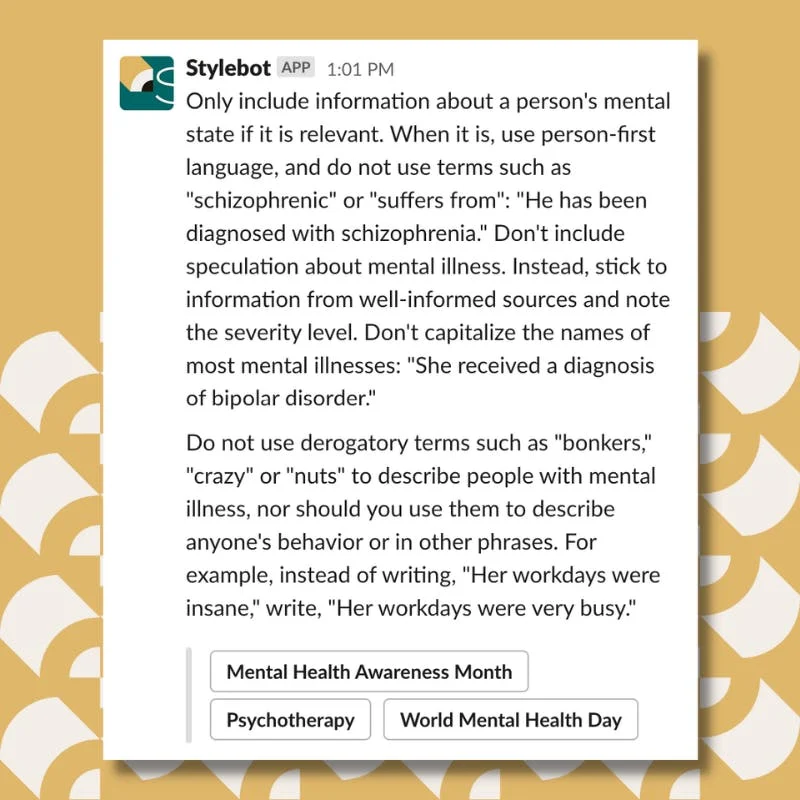May is Mental Health Awareness Month, and when it comes to destigmatizing mental illness, we all have a part to play in our speech and writing. Sometimes the shifts in our language are pretty easy, such as using person-first language. That means you should describe someone as a person with schizophrenia instead of a “schizophrenic,” for example. Research indicates that the use of person-first language has positive effects on the people being described and increases their trust in the content they’re reading.
Other changes to your language might take a little more practice. Certain words are so embedded in our casual speech that it can be hard to stop using them. “Bonkers,” “crazy” and “nuts” are all examples of words we toss around that can have a stigmatizing effect. First and foremost, you should never use these terms to describe a person with mental illness. And second, try eliminating them from other references. There are plenty of alternatives you can select from, including “unpredictable,” “confusing” and “wild.”

As we’ve discussed before, little language changes can make a big difference, and in the case of a word such as “crazy,” the bonus is that you usually end up using a more accurate description.
What words are you trying to eliminate from your vocabulary?
💬 Need more tips?
Want to get writing tips like these on demand? Try Stylebot for free.
📝 About Stylebot
Stylebot helps media professionals save time without sacrificing quality by answering copy editing questions on Slack and Microsoft Teams. We’re on a mission to make editing faster, easier and more fun ✨Lean more about Stylebot or follow us on Twitter and Instagram.
